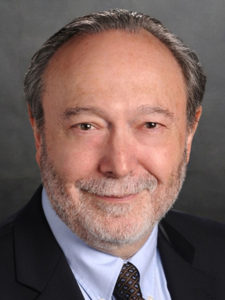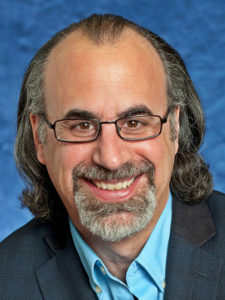A Virtual Dialogue and Liberating Structures Experience
March 10, 2022 | 10:00am – 3:00pm Eastern
Join Dr. Stephen Porges and Dr. Stephen Fiore for a virtual armchair dialogue about transdisciplinary approaches to solving the world’s “wicked problems.” Wicked problems are complex challenges with multiple and conflicting perspectives on best solutions.
The key goal of the dialogue will be understanding Emotion and Collaborative Cognition from Polyvagal Theory and Science of Team Science Perspectives.
After a brief break for lunch, the event will resume with a Liberating Structures Experience to elicit attendees’ responses to the armchair dialogue. Participants will leave with information on how to access Liberating Structures for managing wicked problems, as well as fresh paradigms for understanding emotion and collaborative cognition in transdisciplinary work.

Stephen W. Porges, PhD
Dr. Stephen Porges is Distinguished University Scientist at Indiana University, where he is the founding director of the Traumatic Stress Research Consortium within the Kinsey Institute. He holds the position of Professor of Psychiatry at the University of North Carolina and Professor Emeritus at the University of Illinois at Chicago and the University of Maryland.
Dr. Porges served as president of both the Society for Psychophysiological Research and the Federation of Associations in Behavioral and Brain Sciences and is a former recipient of a National Institute of Mental Health Research Scientist Development Award. He has published approximately 300 peer reviewed scientific papers across several disciplines including anesthesiology, biomedical engineering, critical care medicine, ergonomics, exercise physiology, gerontology, neurology, neuroscience, obstetrics, pediatrics, psychiatry, psychology, psychometrics, space medicine, and substance abuse. His research has been cited in approximately 40,000 peer review publications.
In 1994, Dr. Porges proposed the Polyvagal Theory, a theory that links the evolution of the mammalian autonomic nervous system to social behavior and emphasizes the importance of physiological state in the expression of behavioral problems and psychiatric disorders. The theory is leading to innovative treatments based on insights into the mechanisms mediating symptoms observed in several behavioral, psychiatric, and physical disorders.
He is the author of The Polyvagal Theory: Neurophysiological foundations of Emotions, Attachment, Communication, and Self-regulation (2011), The Pocket Guide to the Polyvagal Theory: The Transformative Power of Feeling Safe (2017), co-editor of Clinical Applications of the Polyvagal Theory: The Emergence of Polyvagal-Informed Therapies (2018), and Polyvagal Safety (expected 2021).
Dr. Porges is also the creator of a music-based intervention, the Safe and Sound Protocol™, which currently is used by more than 2,000 therapists to improve spontaneous social engagement, to reduce hearing sensitivities, and to improve language processing, state regulation, and spontaneous social engagement.

Stephen M. Fiore, PhD
Dr. Stephen Fiore is Director of the Cognitive Sciences Laboratory and Professor with the University of Central Florida’s Cognitive Sciences Program in the Department of Philosophy and Institute for Simulation and Training. He maintains a multidisciplinary research interest that incorporates aspects of the cognitive, social, organizational, and computational sciences in the investigation of learning and performance in individuals and teams. His primary area of research is the interdisciplinary study of complex collaborative cognition and the understanding of how humans interact socially and with technology.
Dr. Fiore is a founding conference committee member for the Science of Team Science annual conference, and a founding board member and past-president of the Interdisciplinary Network for Group Research. He has been a visiting scholar for the study of shared and extended cognition at École Normale Supérieure de Lyon in Lyon, France (2010) and he was a member of the expert panel for the Organisation for Economic Co-operation and Development’s 2015 Programme for International Student Assessment (PISA) which focused on collaborative problem-solving skills.
He has contributed to working groups for the National Academies of Sciences in understanding and measuring “21st Century Skills” and was a committee member of their “Science of Team Science” consensus study, as well as a member of the National Assessment of Educational Progress report Collaborative Problem Solving.
He is co-author of Accelerating Expertise (2013) and co-editor of volumes on Shared Cognition (2012), Macrocognition in Teams (2008), Distributed Training (2007), and Team Cognition (2004). Dr. Fiore has also co-authored over 200 scholarly publications in the area of learning, memory, and problem solving in individuals and groups.